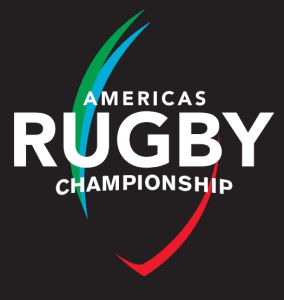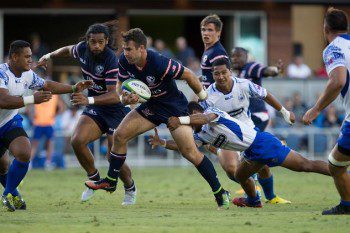 PHILADELPHIA, PA – With The Americas Rugby Championship only two weekends away, I can’t help but start to daydream. I dream of an Americas Rugby Championship that sees full-strength sides from all 6 nations involved. I dream of big crowds watching competitive matches. At the same time, I dream of a successful professional league in North America that fits the sporting culture of North America. For these dreams to have a chance of being realized, the timing of the ARC must be changed.
PHILADELPHIA, PA – With The Americas Rugby Championship only two weekends away, I can’t help but start to daydream. I dream of an Americas Rugby Championship that sees full-strength sides from all 6 nations involved. I dream of big crowds watching competitive matches. At the same time, I dream of a successful professional league in North America that fits the sporting culture of North America. For these dreams to have a chance of being realized, the timing of the ARC must be changed.
The ARC should not be a tournament that mirrors the 6 Nations on the calendar. The tournament, while in the planning stages, was referred to by many as the Americas 6 Nations. That makes sense; however, choosing timing based on the actual 6 Nations is a mistake. We in the Americas are not ruled by the same traditions that influence the European rugby calendar. We have, in a sense, a clean slate on which to draw our best hopes. We should not adopt the traditions of others without carefully considering whether or not they make sense for us.
Why the Timing is Okay This Year

PRO Rugby is just starting this year and will only have teams in America. The fact that the league is opening with 6 teams and a 10 match schedule – plus championship match – means that there is time for both the entire league season and the ARC schedule to occur without conflict. There will be a group of Americans who are in a full-time rugby environment from February through July. That’s good. That’s progress. In Year 1 of PRO Rugby, the league itself could not provide that opportunity.
The tournament is new. PRO Rugby is still in its gestation. Not much harm is being done. For now.
Let’s think long-term, though.
What Should Happen in the Future
Let us imagine that in 5 or 6 years, PRO Rugby has done well enough to have 1) a better name, and 2) 12 teams. That might mean a 16 week season (2 “divisions” with sides playing home and away within the division and playing each side of the opposite division once) plus 2 weeks of playoffs. That could be a great club season and could also be 5 months long.
Let’s be Americas-centric; let’s do what makes sense for us. Let’s have January-July reserved for professional club rugby with September-December reserved for international rugby.
January-July: Domestic Season
September-December: International Season
We fans in North America don’t want our domestic sports leagues to be interrupted by international competitions. We want the best players to always be available to their clubs. That means that there needs to be at least a 5 month period in which no tests are played. With typical American arrogance, I will put out there that when professional rugby succeeds and if USA fans turn out to fill places like Soldier Field for test matches, other nations will find a way to play the Eagles.
The European club season is so long, it would be difficult to schedule an international competition that doesn’t overlap at least a little bit. Running a competition at the same time as the 6 Nations seems close to the worst scenario in terms of either getting players released to their Tier 2 national sides or of making the players attractive signings because of their ability to provide cover during the 6 Nations.

Yes, there are problems with this schedule, including weather and the June test window, but the positives are greater than the negatives. The ARC should take place in September and October. The opportunity to play November tests would remain unchanged. In World Cup years, the ARC could be shifted slightly earlier. Of course, holding the tournament in September and October would be a conflict for Argentina. Right now, though, there is already a conflict with the players involved with their Super Rugby franchise. The problem would be slightly different with the shift, but not worse.
Competing directly with the NFL in America, and college and high school football, is not easy. However, international matches at least offer a different kind of experience for fans than football matches – the support of a nation rather than a franchise or school.
Danger of Ignorance
I can easily imagine my brother, who loves playing rugby but who never got sucked into being a serious fan, saying, “But the 6 Nations is awesome. Of course we should want a tournament that is like that!”
A sold out Twickenham for England v Ireland? What’s not to love about that? Those peripheral fans like my brother, though, are almost certainly ignorant of what is happening in the Pro12 and the Aviva Premiership, including the fact that there is a full lineup of matches in both leagues that weekend.
16 players from the Glasgow Warriors are in the Scotland squad for the 6 Nations. Some version of the club will still need to turn up and play league matches during the 6 Nations. For most Americans, and I assume Canadians, the idea of going out or tuning in to support your team while the best players are gone is a foreign notion.
When I convince my wife to watch Bath v Gloucester on February 5, she is surely going to ask, “Where’s Georgie Boy?” George Ford? Oh, he is with England. “Well, where is the other guy, the new guy?” Rhys Priestland? Off with Wales. “But where is the goal kicker for Gloucester you like because his pre-kick routine is so unpretentious?” Greig Laidlaw? Busy being the captain of Scotland. “Then why are we watching this?” At this point, she will slap me across the face, steal the remote, and find an episode of “Fixer Upper” from the DVR. Since the ARC is new and professional rugby in America is new, let’s be smart enough to avoid this kind of calamity. Please!
Of course, European clubs have planned for this calendar; the fact that it is planned for doesn’t make it something sensible. Tradition is a powerful thing, even if it isn’t logical.
The European calendar is a thing that has evolved over time. There is value in honoring tradition, and changing things in Europe would require some serious soul-searching and agreement from lots of people in charge of protection different – at times conflicting – interests. Fair enough. Play on, Europe.
We in the Americas, though, should take the best ideas from other tournaments and leagues and leave what doesn’t make sense for us. World Rugby needs a better, global calendar. USA Rugby should help drive that by being willing to break with tradition.
Feel free to comment below, look for and “Like” our Facebook Rugby Wrap Up Page and follow us on Twitter@: RugbyWrapUp, Junoir Blaber,James Harrington, Jamie Wall, Nick Hall, DJ Eberle, Jake Frechette, Scheenagh Harrington, Jamie Loyd, Cody Kuxmann, Karen Ritter, Ronan Nelson, Kaitlin McCabe, Kyle Phillips, Rocky Brown and Declan Yeats, respectively

